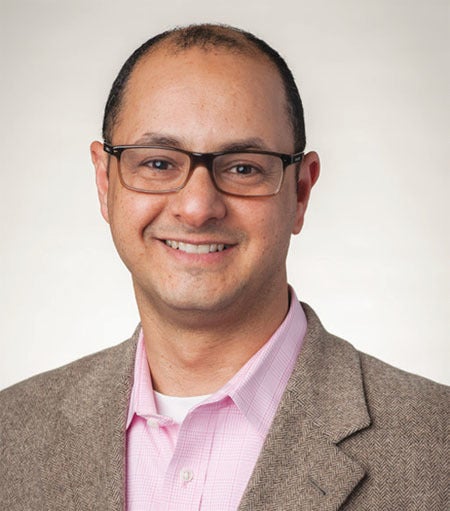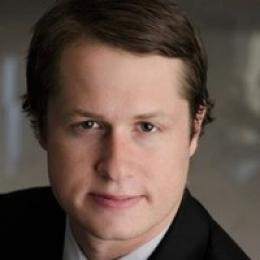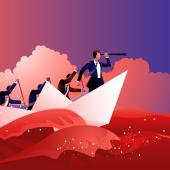
M. Yusuf Mohamed
Deputy General Counsel
Tesla Inc.
No automaker will top Tesla, Inc. when it comes to media coverage. At this moment, there is a cherry-red Tesla Roadster (with a copy of The Hitchhiker’s Guide to the Galaxy, and towel, in the glove box) careening toward deep space at about 6,836 miles per hour. The company is among those headed by billionaire Elon Musk, perhaps the most visible CEO in the world right now. One of his other companies, SpaceX, blasted the luxury car through Earth’s gravitational field on the back of a Falcon Heavy rocket to demonstrate the rocket’s ability to deliver a heavy payload to outer space. The achievement is an engineering marvel, and even more impressive when you consider what’s under the hood at Tesla.
Four years ago, in 2014, Yusuf Mohamed was at a crossroads in his career. He was planning to join a law firm for the first time when he saw a LinkedIn post: Tesla, Inc. was looking for employment counsel. He decided to submit his resume, thinking it was a moonshot. At the time, Tesla had 10,000 employees and its prior employment lawyer had recently left the company.
Mohamed had experience working with a manufacturing company, a rarity in litigious California (where employees are 40 percent more likely to sue than employees in other states). The Tesla factory is in Fremont, in the southeast section of the San Francisco Bay Area, an unlikely location for a massive manufacturing plant because of the high cost of living. Throughout his career, he has gravitated toward companies that make things. At his first job, with the US Department of Labor, he worked with coal miners on issues of workplace safety and health. Later, he was associate general counsel for Georgia-based Wayne Farms, a chicken producer. “Good manufacturing jobs are critical to the economy,” is a maxim he believes. “It’s more interesting to see something tangible that I can walk out, touch, and take apart. That is pretty cool.”
Even his hobbies made it seem like the stars were aligned. For the past 17 years, he has competed in automobile racing and has been immersed in the gearhead culture. The idea of mixing his personal passion with a job that advanced his career and had a genuine mission — to accelerate sustainable transport by bringing awesome mass-market electric cars to market — was an opportunity he couldn’t resist. He took the job without hesitation and forgot about working at a law firm.
Gulping from the fire hose
As Tesla’s only employment lawyer at the time, Mohamed describes his first days as “drinking from the fire hose.” He reported to (and still does) Tesla General Counsel Todd Maron, who in turn reports to Musk. Mohamed’s mandate is to support the building of a scalable, sustainable, efficient HR organization that can support the employee population. It is a population that is growing — since he joined, the company has added 20,000 employees, bringing the total to about 30,000 around the world.
The jobs are far more varied than a typical automotive company. Actually, automobiles are only half the story. In order for its fleet of electric vehicles to operate on a mass scale, the company needs to have charging stations positioned around the world. Homes need to be outfitted with solar panels and battery storage.
Mohamed offers some perspective: “We have people who make solar roofs in Buffalo, New York. We have people making cars in Fremont and people assembling battery packs in Reno, Nevada. We have people who are selling cars and service personnel in our showrooms. We have people who make the customer’s delivery experience seamless from the time they go on the website to configure their vehicle, to the time it shows up. There are people behind the scenes that make all of this happen. There are people who are installing supercharger infrastructure so people can go on long distance trips without range anxiety.”
It’s understandable why he described his first days as drinking from the fire hose.
One of the hallmarks of Tesla is its flat company structure. Communication is very direct. Engineers are across the hall from designers and they constantly intermingle. Even when management layers are created, they shun bureaucracy by making sure the important matters rise to the top. If an employee has an idea for a new design element, they can talk to business leaders about it
Mohamed spent the first few years working on scaling his team. He now has seven lawyers and is hiring another one based in Europe. When he works with outside counsel, he doesn’t follow a formula. He won’t do things simply because it’s the way it’s been done in the past.
He works with his HR partners to proactively address issues. For example, his team won’t let harassment allegations languish or wait until multiple reports come in. A single report results in action.
The larger team has also helped Mohamed focus on employee engagement. In order for the company to harness the potential of its employees, Tesla is putting together a robust leadership development program. There’s an opportunity for legal to help them, Mohamed says. His team can help the program designers stay compliant as they work toward the goal, rather than having them realize a legal problem after the fact. A lot of Mohamed’s day-to-day work is supporting his team to help them accomplish their goals.
It’s clear that Tesla employees buy into the company’s mission. Musk recently signed a new compensation package that pays him nothing unless Tesla’s market value rises to US$100 billion. “You can’t have a better ambassador for the brand than a CEO like ours, who really wholeheartedly is not doing it for the money but because he fully believes in the mission of the company to transform the world’s reliance on fossil fuels,” Mohamed stresses, adding the enthusiasm flows down from the top. The company’s compensation structure includes equity in the company. All employees have an equity grant that vests over a four-year period and for most production employees, even faster, over a one-year period.
From washing cars to Tesla
Mohamed describes driving Tesla cars as mind-bending. “It completely changes every assumption that you had about how a car would react and behave on the road. [The engineers] have literally reinvented everything except the wheel,” he gushes. He recently bought his wife a Model 3 and he reports she is a happy customer. Tesla redesigned the car so the weight of the battery is spread across the bottom on the car. Buttons are almost nonexistent. Instead, there is a large touchscreen that operates everything; even the glove box is opened with the touchscreen.
His love affair with cars started long before he joined Tesla. Mohamed was born in Cairo, Egypt but considers Georgia home. In 1972, his parents immigrated to the United States through the lottery system. With only US$200 in his pocket, his father initially worked as a security guard. After going to graduate school at night, his father landed an accounting job. He retired as a CFO. A generation later, Mohamed helps his company sponsor tech workers to join Tesla through the H1B visa program.
Growing up, Mohamed would ask his mother if he could wash her car. The payoff: He was allowed to back the car out of the garage. His love of cars never subsided.
For the past 14 years, Mohamed has driven a modified Mazda Miata on racetracks around the United States. He loves cars, whether gasoline powered or electric. He isn’t perturbed by the advancement of self-driving cars. He sees it as part of a logical evolution. The technology will save lives, while car enthusiasts can always go to a track to get their speed fix.
After he earned his JD from the University of Georgia, he joined the US Department of Labor where he learned the cornerstones of employment law. During his time working for the government, September 11 happened. “If I had any doubts before,” he reflects, “it was obvious that I wasn’t white anymore.” He was working on official business for the US government and was stopped and questioned at the airport. He feels like his identity was forced on him. The experience made him think about how he could help others like him. He decided to become involved in organizations like the National Association of Muslim Lawyers (NAML) and Muslim Advocates, in which he is still active. Through NAML, “I have an opportunity to provide that mentorship for younger folks who never had somebody who looked like them, who shared their same values,” Mohamed says.
Sometimes, he thinks about how he wound up at Tesla, working to change the way the world operates. There was luck involved, and a bit of faith. Ultimately, it may have just been a cosmic chance, which makes sense, considering that a car Tesla built is currently floating in space.
Getting to know…. Yusuf Mohamed
ARE YOU READING ANYTHING RIGHT NOW?
I recently read Stephen Colbert’s first book, I Am America [And So Can You!].
IF YOU COULD HAVE LUNCH WITH ANYONE FROM HISTORY, WHO WOULD IT BE?
There is a guy named Mark Donohue. He was a racecar driver who passed away in 1975 and his autobiography is called The Unfair Advantage. It talks about how to be creative within a set of rules. One of the things he talks about is how to come up with an unfair advantage. The unfair advantage is not an illegal advantage. For example, he talks about a particular racing team trying to figure out how to make pit stops faster. They realized that if they put four lug nuts on a wheel instead of five, then they could change tires significantly faster. There was no rule saying you couldn’t do it, so they did it. Of course, the rule-making group banned it the following week.
It comes down to understanding the basic elements and designing it from the ground up. I don’t take what I’m given as a constraint, which I always stress with outside counsel. I say, “whiteboard it for me. Tell me what’s the best way to solve this problem with limited resources in a limited timeframe.”
He is also someone who got into racing late into his life. I’d like to ask him how he got into it late and how he got so good at it so quickly. It’s kind of esoteric, but that’s who I would like to meet.




